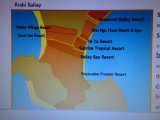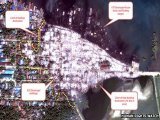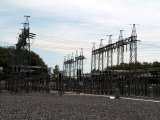PHUKET: Every Australian child will be required to learn an Asian language and study Asian culture under a government plan revealed today.
The white paper on 'Australia in the Asian Century,'' commissioned by the Prime Minster, Julia Gillard, outlines 25 objectives for the nation to achieve by 2025. [ A white paper is the technical term for a policy that has yet to be approved.]
Australia has long been seen from most parts of Asia as a misplaced European outpost, these days heavily influenced by the US, despite government efforts from time to time to change that point of view.
The policy outlines plans for new full consulates on Phuket, in Shenyang, China, and Indonesia's east plus a full embassy in the Mongolian capital, Ulaanbaatar. But there's no budget yet.
The white paper - in reality a blueprint - says Australia should be in the top five countries for ease of doing business by 2025 and its diplomatic network should have a larger footprint across the region.
Tourism is not a focus of the paper but the high number of Australians who already travel to Phuket and Bali especially offers leverage for investment and trade to follow.
Outpourings of shared grief after the Bali bombings of 2002 and the massive tsunami that hit Phuket and the Andaman and devastated other parts of the region in 2004 created emotional ties for many.
''Our goal is to ensure that Australians have higher incomes in a more diverse economy that is resilient in the face of ongoing change,'' the 312-page report says today.
''The Asian Century offers a wealth of opportunities and career choices in a variety of businesses, including small and medium-sized enterprises, especially for Australia's young people,''' it says.
The new report identifies sport, tourism, education, the arts, professional, business, banking and financial services, science and technology ''thanks to a growing affluence in Asia''.
Asian studies '''will be a core part of a national school curriculum'' and Australia's students would be able to learn Chinese, Hindi, Indonesia or Japanese.
''Children in kindergarten now will graduate from high school with a sound working knowledge of Asia,'' Primwe Minister Gillard said.
Much of the paper concentrates on the economic benefits Australia expects to gain from playing its role in the Asian Century.
Written by former Treasury secretary Ken Henry, the report sets the target that one-third of board members of Australia's 200 top listed companies have ''deep experience and knowledge of Asia'' by 2025.
The white paper projects Australia's real average national income will increase to $73,000 per person by 2025 - up from $62,000 this year. At least one third of the national economy will be deeply integrated with Asia, up from about one-quarter today.
''Australia comes to these challenges with firm foundations: a strong economy, a track record of engagement in the region, and the person-to-person connections many Australians already have with people in Asian countries,'' Prime Minister Gillard said.
Seven of the top 10 source countries in Australia's migration program are in the Asian region, including India, China, the Philippines, Sri Lanka, Malaysia, South Korea and Vietnam.
Students from Asia already account for about 77 percent of more than 550,000 international enrolments each year.
The white paper on 'Australia in the Asian Century,'' commissioned by the Prime Minster, Julia Gillard, outlines 25 objectives for the nation to achieve by 2025. [ A white paper is the technical term for a policy that has yet to be approved.]
Australia has long been seen from most parts of Asia as a misplaced European outpost, these days heavily influenced by the US, despite government efforts from time to time to change that point of view.
The policy outlines plans for new full consulates on Phuket, in Shenyang, China, and Indonesia's east plus a full embassy in the Mongolian capital, Ulaanbaatar. But there's no budget yet.
The white paper - in reality a blueprint - says Australia should be in the top five countries for ease of doing business by 2025 and its diplomatic network should have a larger footprint across the region.
Tourism is not a focus of the paper but the high number of Australians who already travel to Phuket and Bali especially offers leverage for investment and trade to follow.
Outpourings of shared grief after the Bali bombings of 2002 and the massive tsunami that hit Phuket and the Andaman and devastated other parts of the region in 2004 created emotional ties for many.
''Our goal is to ensure that Australians have higher incomes in a more diverse economy that is resilient in the face of ongoing change,'' the 312-page report says today.
''The Asian Century offers a wealth of opportunities and career choices in a variety of businesses, including small and medium-sized enterprises, especially for Australia's young people,''' it says.
The new report identifies sport, tourism, education, the arts, professional, business, banking and financial services, science and technology ''thanks to a growing affluence in Asia''.
Asian studies '''will be a core part of a national school curriculum'' and Australia's students would be able to learn Chinese, Hindi, Indonesia or Japanese.
''Children in kindergarten now will graduate from high school with a sound working knowledge of Asia,'' Primwe Minister Gillard said.
Much of the paper concentrates on the economic benefits Australia expects to gain from playing its role in the Asian Century.
Written by former Treasury secretary Ken Henry, the report sets the target that one-third of board members of Australia's 200 top listed companies have ''deep experience and knowledge of Asia'' by 2025.
The white paper projects Australia's real average national income will increase to $73,000 per person by 2025 - up from $62,000 this year. At least one third of the national economy will be deeply integrated with Asia, up from about one-quarter today.
''Australia comes to these challenges with firm foundations: a strong economy, a track record of engagement in the region, and the person-to-person connections many Australians already have with people in Asian countries,'' Prime Minister Gillard said.
Seven of the top 10 source countries in Australia's migration program are in the Asian region, including India, China, the Philippines, Sri Lanka, Malaysia, South Korea and Vietnam.
Students from Asia already account for about 77 percent of more than 550,000 international enrolments each year.
















With Asean nations choosing English as their working language Australia would do better to reform its unionised backward and overpaid workforce if it wants to attract investment.
Posted by Anonymous on October 28, 2012 14:23